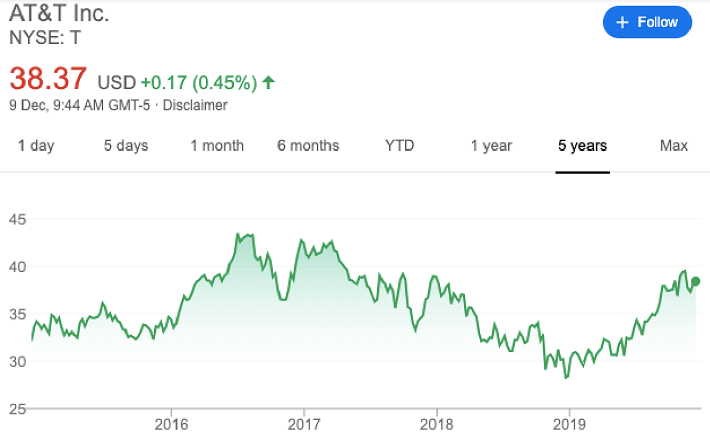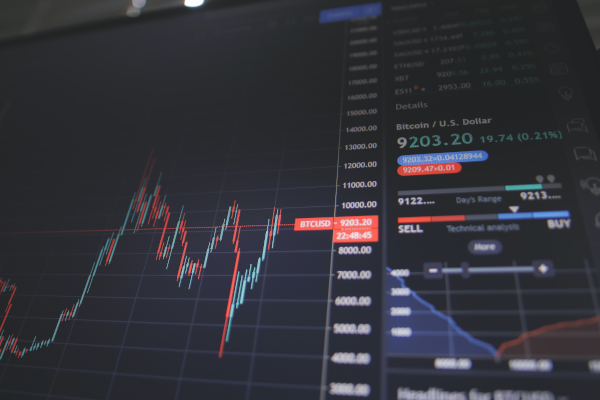Published December 9th, 2019
This article is a guest contribution by Ryan Scribner from InvestingSimple.
When it comes to investing in the stock market, you primarily have two types of investors out there.
The first is a growth investor, looking to put their money behind companies that are expanding and scaling operations. The second type is an income investor, looking to hold stocks that pay dividends. Most income investors are solely looking at companies that pay dividends when making investments. They want those quarterly or annual dividend payments for the purpose of reinvestment or income for some other purpose.
Companies in the growth stage rarely pay dividends. In fact, many of these companies are not even profitable yet. They are focused on acquisitions, expansion, product development and all of these other things that cost a lot of money. As a result, they simply cannot afford to pay a dividend. Most companies begin paying dividends as a way to entice and reward shareholders. These dividend payers are often companies that do not have massive growth potential.
For example, consider AT&T (T). This is a popular pick among dividend investors, however if you consider the financials of this company, you will immediately see there has been little to no growth over the last few years. The reason is because AT&T is so large, they have basically achieved market saturation. The only way they can grow any larger is by acquiring other smaller companies, and that comes at a cost of a higher debt load.
In order to keep investors around, AT&T has to pay an attractive dividend. Otherwise, they have very little to offer the shareholder. If you look at the performance of the stock, it has been moving sideways for over 5 years. There may be some hills and valleys, but overall this stock is a total sleeper! However, AT&T currently pays a dividend yield of 5.3% which is above average, and that attracts income investors.

Source: Google Finance
It is important to remember, however, that dividends are never guaranteed. A company can cut or cancel a dividend at any time. Generally speaking, companies like to continue paying dividends and continue increasing them to earn the trust of shareholders. This is often referred to as the dividend growth streak.
So now we understand why growth stage companies do not pay dividends and why well established companies do. But what about well established, cash flowing companies that don’t pay a dividend? It is a strange yet common phenomenon. Remember, there is no law or requirement out there that says a company has to pay dividends to shareholders, so some companies don’t!
Here are some of the most well known, large companies that do not pay dividends…
Note: Click on the links below to read analysis on if these companies will ever pay a dividend.
- Facebook (FB)
- Google (GOOG)
- Amazon (AMZN)
- Berkshire Hathaway (BRK.A)
So, what gives? Consider Berkshire Hathaway for example. In Q3 of 2019, it was reported that they have $128 billion in cash! Or look at Amazon, they did over $232 billion in revenue in 2018. All of these companies mentioned could reasonably afford to pay a dividend to shareholders (a small dividend in the case of Amazon), but they don’t pay a penny. And yet, the share price still climbs. While I don’t have a crystal ball, here are a few logical reasons why they don’t pay dividends.
Reason #1 – Reinvesting Profits
The first reason why some companies do not pay dividends is because they would rather reinvest those profits back into the business. This is exactly what growth stage companies do, but some companies never stop! Consider Amazon for example. Rather than paying dividends to shareholders, the management team believes they can deliver better value to shareholders by reinvesting the profits back into operations. Not only that, this is a legal way for Amazon to avoid taxes as well!
This is one of the main reasons why companies like Amazon are so innovative. They generate a boat load of cash, and then they reinvest that cash back into new products, ideas and services. This is the exact same business model Google follows too. If these companies have a big win, it will ultimately make the share price climb higher which brings value to the shareholders.
Reason #2 – Acquisitions
Another reason why companies will hold off on dividend payments and hoard cash is for acquisitions. This happens when one company essentially purchases another one, and they merge under one entity. Another common occurrence is when a company will purchase an ownership stake in another company. For example, in 2018 the big tobacco company Altria (MO) invested $12.8 billion for a 35% stake in the e-cigarette company Juul. These types of deals and acquisitions happen all the time, and they often require a lot of cash!
Note: In Altria’s case, the company has a long history of paying dividends and currently has a high 6.7% dividend yield.
Acquisitions are something that Warren Buffett is very well known for. He is the chairman and CEO of his company Berkshire Hathaway. Rumor has it that he has earmarked all that cash (over $125 billion!) for a major acquisition. Buffett has spoken out against paying dividends in the past, stating that money can be spent better in other ways. He believes, and has proven, that he can deliver more value for shareholders through reinvestment and acquisitions.
Reason #3 – Debt/Financial Trouble
Here’s a different scenario to consider. Sometimes you will run into a company that used to pay a dividend, but no longer does. Or, they slash the dividend. The main reason behind this is financial hardship. As mentioned earlier, companies generally like to continue paying dividends, as this attracts shareholders and keeps them around. However, sometimes you will run into a company that has to cut or eliminate a dividend due to financial troubles.
Consider General Electric (GE) for example. For decades, they were known as a great stock for income investors with a very safe dividend. After their unraveling began in 2017, more bad news followed. Finally, in December of 2018 it was announced that they would slash the dividend to a penny a share. The reason behind this is because paying a high dividend at this point in time was financially irresponsible. At one point in time, the future was uncertain for GE based on the financial health of the company. The best way they could bring value to shareholders was to get the company back on track. This meant that the money being spent on a high quarterly dividend was better spent paying down debts and bailing out the company.
Closing Thoughts
We will always have some companies that pay dividends and some that do not. Occasionally, we have the white elephants like Google, Facebook, Berkshire Hathaway and the other companies mentioned above that do not pay dividends despite a clear ability to afford one.
In summary, the main reason for not paying a dividend is because these companies have decided they can better spend the money elsewhere, and investors in these companies believe them! I’ll put it this way, would you rather invest $1,000,000 or have Jeff Bezos invest $1,000,000? Most people would choose Jeff Bezos, based on his track record, and that is why they are comfortable with investing in Amazon even though they don’t pay a dividend.





